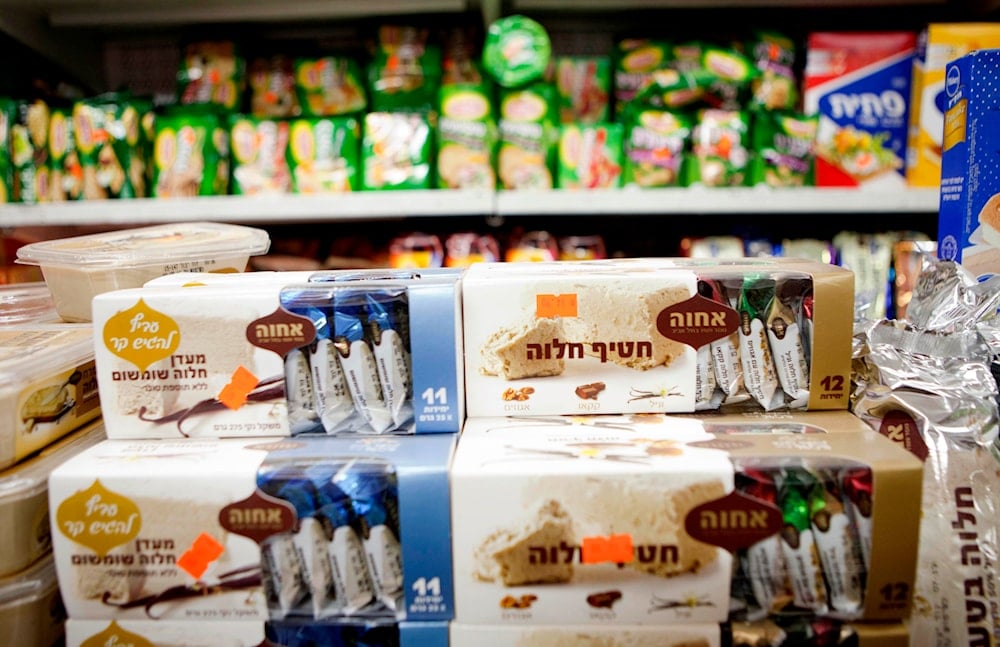Osem hikes food prices by 2.2% for the second time this year
The price increase comes on the heels of similar hikes by several other Israeli food companies.
-

Food products manufactured in "Israel" are on display at a supermarket in Tel Aviv, on November 11, 2015. (AP)
Osem, one of "Israel's" largest food manufacturers and distributors, announced that starting in July, the prices of many of its food products will increase by an average of 2.2%, according to reports from Israeli media on Thursday.
This price increase comes on the heels of similar hikes by several other Israeli food companies.
Earlier this month, Strauss announced price increases for some non-price-controlled dairy products. This move came after Coca-Cola and Tnuva announced their own price hikes.
It is also worth noting that gas prices and the cost of price-controlled dairy products have also increased recently.
OECD estimates lesser growth in Israeli economy than promised
Earlier this month, the OECD revealed that the Israeli economy would see a growth of 1.9% in 2024, compared to its pre-war forecast of 3.3% growth. In 2025, the Israeli economy is expected to grow by 4.6%.
The OECD's report exhibits a discrepancy between its forecast and the Israeli Central Bank's 2% projection for 2024, and 5% for 2025. The International Monetary Fund also estimated a lower growth of 1.6% for 2024, but a higher one for 2025, standing at 5.4%.
This outlines how the Israeli economy is being adversely affected by its ongoing war on Gaza, with the report further emphasizing the construction sector's setback because of the absence of foreign laborers. According to the OECD, there has been a 53% decrease in the rate of new settler housing projects in occupied territories during the final quarter of 2023, with only a partial rebound anticipated in 2024.
The document further states that inflation in "Israel" has remained relatively low since reaching its peak (5.4% in January 2023), projecting a 2.5% inflation rate for 2024, compared to the Israeli Central Bank's forecast of 2.7%. The OECD anticipates inflation to persist at this level in 2025, allowing the Bank of "Israel" to reduce the interest rate to 3.75% (down from the current 4.5%) in the upcoming year.
Regarding fiscal policy, the report indicates that, besides the expenses related to the war, defense costs are expected to permanently increase by at least 0.5% of GDP.
Read more: 'Israel' concerned that academic boycott will impact research, economy

 3 Min Read
3 Min Read








